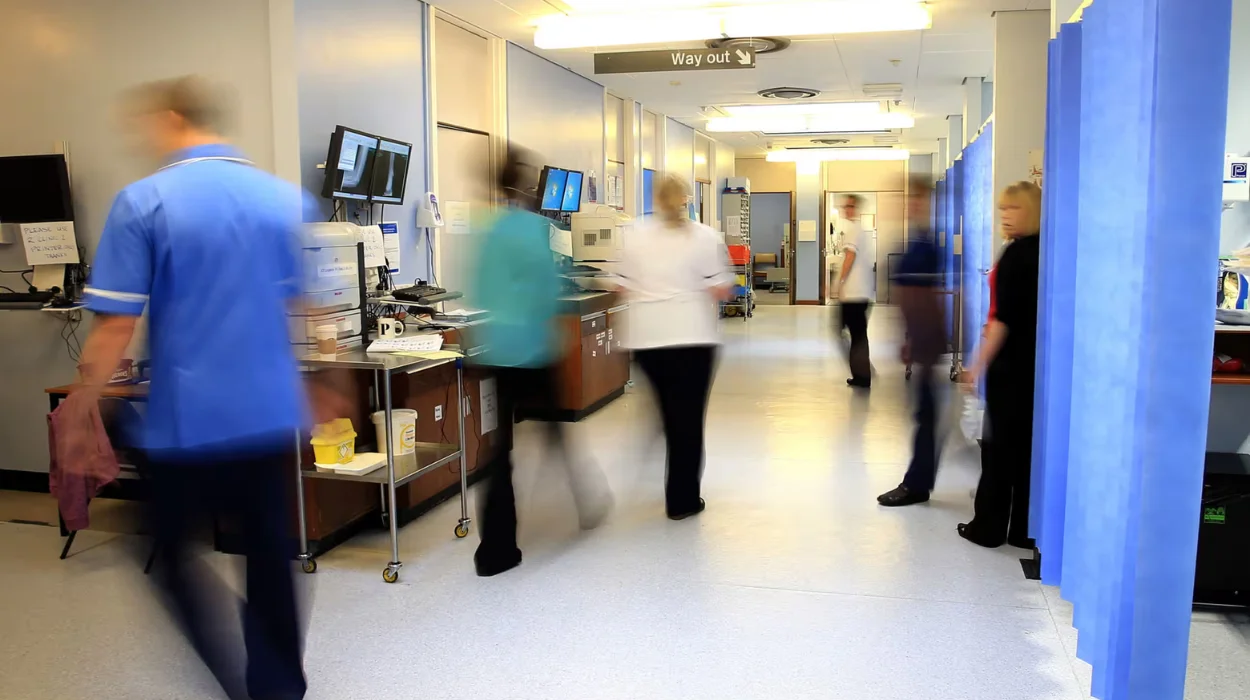UK (Parliament Politics Magazine) – NHS England hit by a surge in last-minute elective surgery cancellations, as over 19,000 miss the 28-day deadline, double the 2015 figure.
As reported by The Guardian, new data shows nearly a quarter of elective NHS procedures in England faced abrupt cancellation last year, and most were not rebooked within the required 28-day period.
The latest figures reveal a sharp increase in NHS surgery delays, with breaches of the 28-day rescheduling limit climbing from 9,000 in 2015-16 to 19,400 in 2024-25.
What did new data reveal about the rise in cancelled surgeries?
According to figures obtained from the House of Commons library for the Liberal Democrats, just 7% of cancelled elective surgeries were not rescheduled within 28 days. This highlights a growing challenge in NHS surgery management.
Out of 85,400 planned operations last year, 19,400 were not rescheduled on time. This means 23% of surgeries faced delays. The number was 1,500 higher than the previous year, showing an 8% rise.
Among 108 NHS trusts in England with complete yearly data since 2015-16, 73 experienced an increase in breach numbers.
What did the Lib Dems say about rising NHS delays and patient abandonment?
Helen Morgan, the Liberal Democrats’ health and social care spokesperson, said the data showed patients are being left behind.
She stated,
“Patients are being left in the lurch, forced to wait in pain and distress for potentially life-altering operations. Each of these delays represents an extra month that someone’s misery is prolonged.”
Ms Morgan slammed the Labour government for ignoring the impact of Conservative NHS cuts.
She said,
“This is the devastating legacy of the Conservatives’ neglect of this NHS, but the Labour government is proving aimless in how to turn this around with ill-thought-through reforms and kicking vital projects into the long grass.”
Ms Morgan added,
“This embrace of dither and delay on building new hospitals or fixing the crisis in social care, so crucial to fixing the underlying problem in the health service, is failing patients. It is time ministers realised this and showed real ambition in ending these unacceptable delays and getting patients the care they deserve.”
What did Prof Pat Price say about the new NHS radiotherapy machines?
Prof Pat Price, head of Radiotherapy UK, welcomed the new machines but called them inadequate.
She said,
“The brutal truth is this will only replace half of the out-of-date machines in the NHS. And still, six in 10 cancer patients are waiting too long for their radiotherapy treatment. Without long-term investment in radiotherapy, this is a sticking plaster on a cancer service in crisis.”
Ms Price added,
“Massive waits for cancer treatment have become the rotten routine due to a lack of investment in kit and people. Unless ministers back this with the proper long-term investment called for in the spending review and the cancer plan, more patients will be left waiting, and many will die who don’t need to.”
What did Wes Streeting say about new radiotherapy machines?
Wes Streeting, the health secretary, stated,
“By reducing the number of hospital visits required and preventing cancelled appointments, these state-of-the-art radiotherapy machines free up capacity so that thousands more patients are treated on time.”
He added,
“As a cancer survivor, I know just how important timely treatment is. These machines are part of the investment and modernisation that will cut waiting times for patients, through our plan for change.”
DHSC views on NHS investment and new radiotherapy machines
A Department of Health and Social Care (DHSC) spokesperson stated,
“Years of underinvestment in the NHS has left it with outdated, creaking machinery that breaks down and causes thousands of cancelled appointments.”
They added,
“That’s why we are announcing £70m investment in new radiotherapy machines, using cutting-edge equipment to save 13,000 cancelled appointments a year, cut waiting times for treatment, and modernise the health service. While there is more to do, our plan for change has put the NHS on the road to recovery.”
DHSC’s £70m investment in cancer patient care
The Department of Health and Social Care revealed plans to introduce radiotherapy machines to 28 hospitals starting in August. This move aims to provide faster treatment for 4,500 cancer patients.
The new linear accelerator machines, included in a £70 million cancer care upgrade, may reduce the number of radiotherapy sessions patients need. They will also help treat tumours located in challenging areas such as the chest, abdomen, and pelvis.
According to the DHSC, the new machines could prevent up to 13,000 appointments lost each year due to equipment failures. By March 2027, they expect an extra 27,500 treatments annually.


